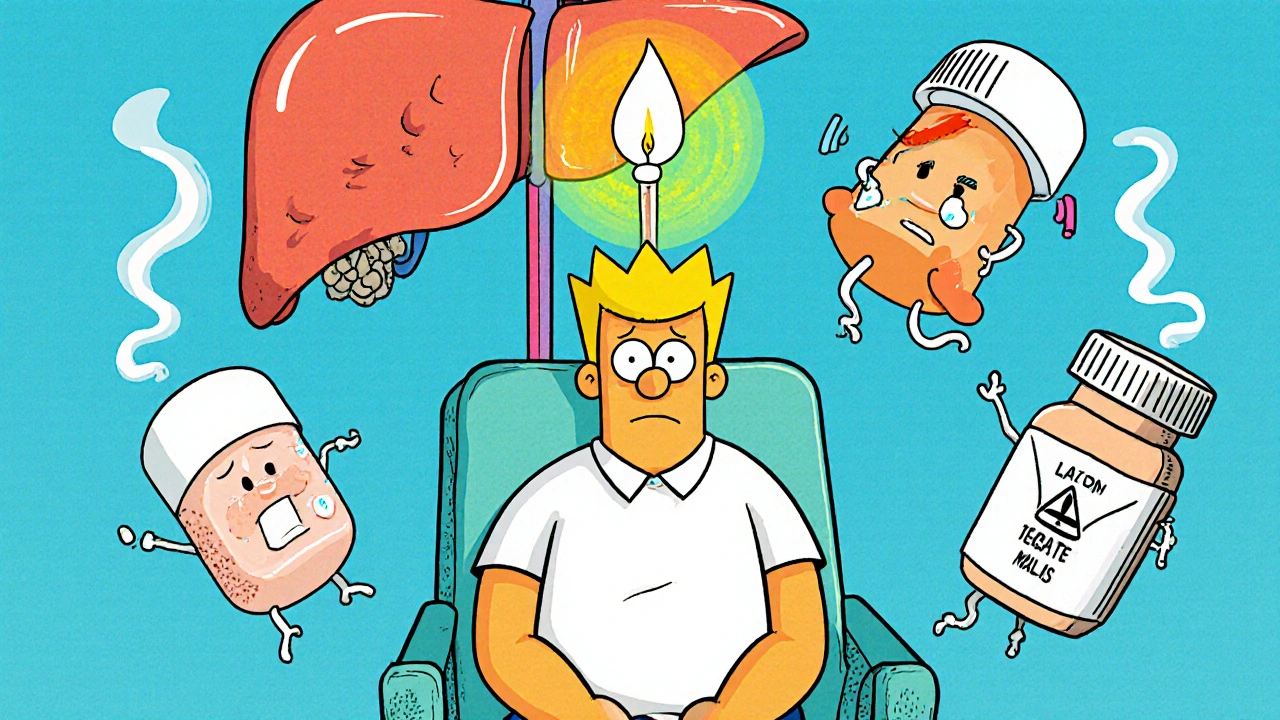SSRI Interactions: What You Need to Know About Drug Risks and Safety
When you take an SSRI, a type of antidepressant that increases serotonin levels in the brain to improve mood. Also known as selective serotonin reuptake inhibitors, these drugs are among the most commonly prescribed for depression, anxiety, and OCD. But they don’t play well with everything—mixing them with other substances can trigger serious, even life-threatening reactions.
One of the biggest dangers is serotonin syndrome, a condition caused by too much serotonin building up in your body. This isn’t rare—it happens when SSRIs are taken with other serotonin-boosting drugs like MAOIs, certain painkillers like tramadol, or even herbal supplements like St. John’s wort. Symptoms include confusion, rapid heartbeat, high blood pressure, muscle rigidity, and fever. If you feel sudden changes after starting a new medication, don’t wait—get help fast. Many people don’t realize that over-the-counter cold medicines, migraine treatments like triptans, and even some anti-nausea drugs can also interfere. Even something as simple as ibuprofen or aspirin can increase bleeding risk when paired with SSRIs, especially in older adults.
It’s not just about other pills. Alcohol, cannabis, and certain energy drinks can make SSRIs less effective or worsen side effects like dizziness, drowsiness, or mood swings. People on multiple medications—especially seniors managing diabetes, heart disease, or chronic pain—are at higher risk. That’s why keeping a clear, updated list of everything you take, including vitamins and supplements, isn’t just good advice—it’s essential. Your doctor or pharmacist needs to see the full picture to catch dangerous combinations before they happen.
Some SSRIs are riskier than others. For example, paroxetine and fluoxetine stick around in your system longer, so interactions can show up days after you stop or start another drug. Sertraline and escitalopram tend to be more forgiving, but that doesn’t mean they’re safe to mix blindly. If you’ve been on an SSRI for months and your doctor adds a new prescription, ask: Could this change how my antidepressant works? It’s a simple question that could save your life.
Below, you’ll find real-world guides that break down exactly how SSRIs interact with other treatments—from pain meds to sleep aids, from diabetes drugs to herbal remedies. These aren’t theoretical warnings. They’re based on actual patient cases, clinical data, and the kinds of mix-ups that land people in the ER. Whether you’re taking an SSRI yourself or helping someone who is, this collection gives you the clear, practical info you need to avoid harm and stay in control of your health.




